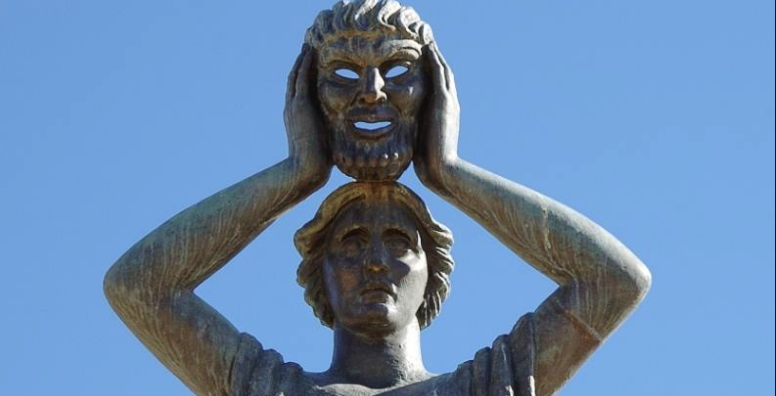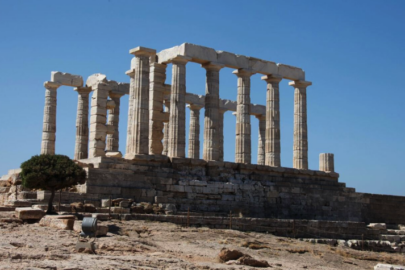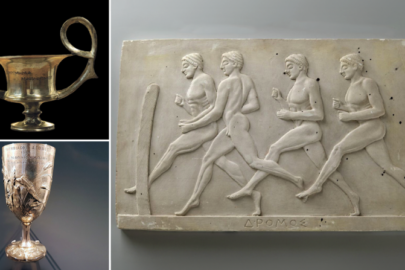In 534 BC, legend holds that the performer known as Thespis of Ikaria (now Dionysos, Greece) recited lines as someone other than himself—becoming the world’s first actor.
According to Aristotle, Thespis transformed the presentation of stories forever by emerging from the Greek chorus and acting an individual role. Greek tragedy is said to have been originated from dithyrambic poetry, which was the choral presentations of Greek myth that included movement.
Thespis was a singer of dithyrambs (songs about stories from mythology with choric refrains). He is credited with introducing a new style in which one singer or actor performed the words of individual characters in the stories, distinguishing between the characters with the aid of different masks.
This new style was called tragedy, and Thespis was the most popular exponent of it. Eventually, in 534 BC competitions to find the best tragedy were instituted at the City Dionysia in Athens, and Thespis won the first documented competition. Capitalising on his success, Thespis also invented theatrical touring;[2] he would tour various cities while carrying his costumes, masks and other props in a horse-drawn wagon.
Before this time, theatre performances were either storytelling or “choral” productions. Storytellers not only told stories of Greek gods and heroes, they also danced and sang. A Greek chorus was a group of between 12 and 50 performers who spoke in unison and often wore masks. Thespis was allegedly performing as part of a chorus when he stepped forward. He spoke lines written for the chorus by himself, in character as the Greek god Dionysus.
Today, all actors are called “thespians” in his honour.

































